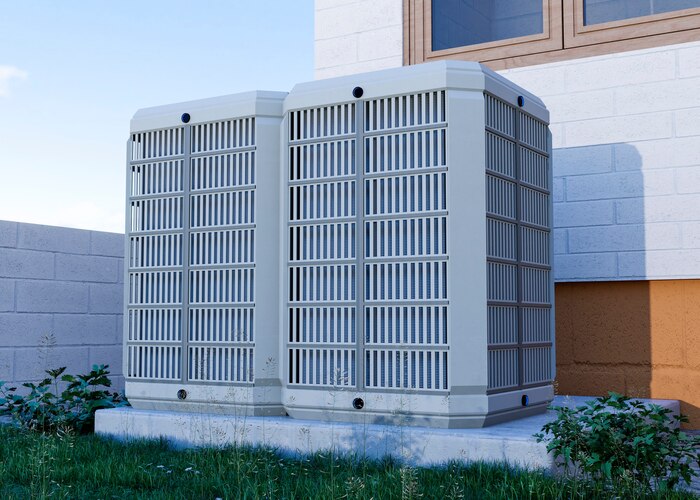24/7 HVAC Emergency Service

Customers looking for the newest developments in environmentally friendly HVAC technology will find this blog post to be quite informative. The article explores innovative innovations such as sustainable refrigerants, smart thermostats, and energy-efficient heating and cooling systems.
It also looks at how these developments might save customers money and how they affect the environment. Readers may anticipate learning important insights into how these technologies are changing the HVAC sector, with an emphasis on sustainability and pragmatism.
Energy-efficient HVAC technology advancements have produced environmentally friendly systems with a major negative influence on the environment. Using renewable energy sources, such as solar energy and geothermal heat pumps, and upgrading buildings with energy-efficient technology are some examples of these advancements. These days, energy-saving, automated temperature control is available with smart thermostats.
Ecological HVAC technology is essential to preserving the environment. By conserving resources and halting climate change, the adoption of these systems reduces carbon footprints and improves indoor air quality, which is in line with global sustainability goals.
Geothermal HVAC systems use the earth's stable underground temperature for efficient heating and cooling. They operate through a ground loop filled with fluid, transferring heat between your home and the earth.
Highly efficient, these systems can cut utility bills by up to 50%, offering long-term savings. They're reliable, unaffected by extreme weather, and environmentally friendly, reducing greenhouse gas emissions and fossil fuel dependence. Geothermal HVAC represents a sustainable choice for comfortable indoor temperatures and a greener future.
An advancement in environmentally friendly HVAC technology, solar-powered air conditioners harness solar radiation to provide effective cooling. By utilizing photovoltaic panels to transform sunshine into electricity, these systems enable peak operation during peak daylight hours without putting undue strain on the electrical grid. Lower electricity costs and a decreased reliance on non-renewable energy sources are the results of this innovation.
For homes and businesses, solar-powered air conditioning offers a sustainable solution for climate management. These systems are a great option for ecologically conscious temperature control for enterprises that are dedicated to eco-friendly operations as well as homeowners looking to lower their energy costs and carbon footprint.
The combination of natural gas and electricity in dual-fuel heat pump technology results in increased efficiency and lower energy usage. This invention adjusts to the price and availability of energy, alternating between gas and electricity to get the best results and reduce utility costs. It offers an affordable way to sustainably maintain interior comfort.
Modern dual-fuel heat pump technology replaces conventional heating with natural gas, resulting in a significant reduction in emissions. This environmentally friendly method ensures consumer satisfaction and sustainability while lowering carbon emissions in line with environmental conservation initiatives.
Smart thermostats, a key innovation in eco-friendly HVAC technology, offer precise temperature control, leading to significant energy savings. They automatically adjust settings based on occupancy, reducing unnecessary energy use. Learning user behavior, these thermostats optimize heating and cooling, cutting costs and energy consumption.
Building automation systems enhance HVAC efficiency by integrating various components under one platform, reducing energy wastage. They control HVAC units based on occupancy, adjusting airflow in real time. This automation not only improves comfort but also achieves considerable energy savings in residential and commercial settings.
Modular HVAC systems offer customizable heating and cooling, enhancing energy efficiency and reducing costs. These systems adapt to specific zone requirements, using advanced technologies like Variable Refrigerant Flow (VRF) for precise control and power conservation, thus minimizing environmental impact.
Ductless HVAC systems eliminate the need for ductwork and improve efficiency and indoor air quality. They prevent the circulation of pollutants, offering an eco-friendly alternative for heating and cooling. These systems balance sustainability with comfort and performance, making them a popular choice in modern HVAC solutions.
Predictive maintenance software uses data analysis to preemptively identify HVAC system issues, enhancing performance and preventing breakdowns. This technology enables timely, need-based maintenance, reducing malfunctions and extending equipment lifespan.
Energy analysis software is crucial for identifying energy-saving opportunities in HVAC systems. It provides insights into energy consumption patterns, helping to pinpoint areas for efficiency improvements. By analyzing data, such as energy use during peak hours, consumers can adjust settings or upgrade components, effectively reducing energy waste.
Innovative green HVAC technology incorporates connectivity for remote monitoring and control, enabling energy savings by adjusting settings from anywhere. This feature is particularly useful in managing energy use in unoccupied spaces, ensuring efficient operation without wastage.
The integration of IoT technology in green HVAC systems allows for real-time data collection and analysis, optimizing system performance based on actual usage. IoT sensors can adjust temperature settings by detecting occupancy levels, ensuring efficient energy use tailored to real-time needs.
The latest eco-friendly HVAC technologies, including geothermal, solar-powered systems, dual fuel heat pumps, smart thermostats, and predictive maintenance, mark a significant shift towards sustainable climate control.
These innovations offer consumers reduced carbon footprints, cost savings, and improved indoor comfort. By adopting these technologies, consumers contribute to a greener future while enjoying advanced performance and environmental benefits.
Learn more about selecting the right air quality system for your home from our blogs at HVAC of America.
